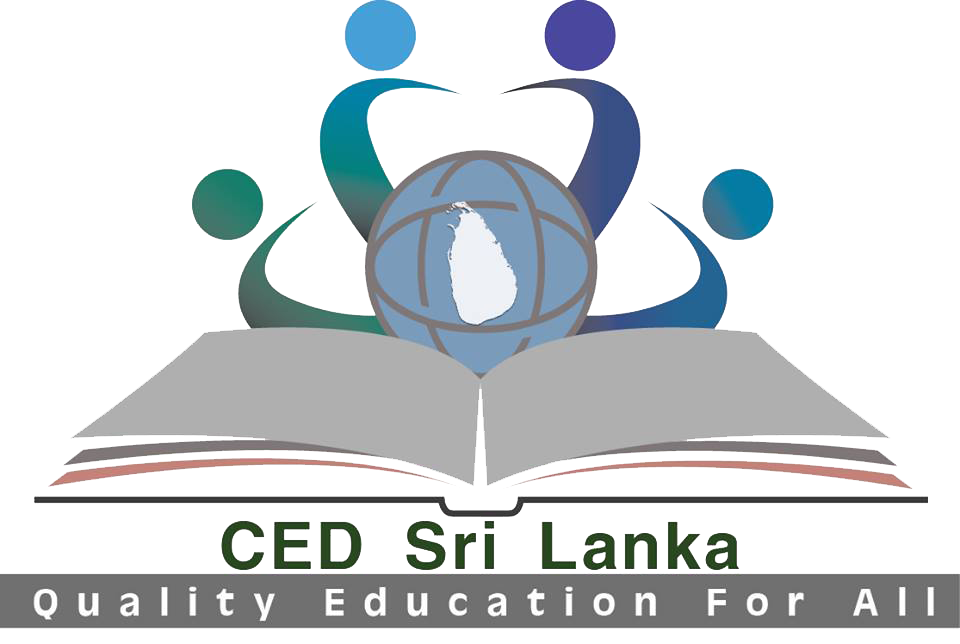චීනයෙන් ආරම්භ වූ කොරෝනා වෛරසය මුළු මහත් ලෝකවාසීන් භීතියට පත්කරමින් ලෝකයේ රටවල් 106 ක පමණ පුද්ගලයින් මිලියන දෙකකට වැඩි පිරිසකට ආසාදනය වී ඇති අතර ඉන් ජීවිතක්ෂයට පත් වූ පිරිස ලක්ෂ දෙකකට ආසන්න වෙමින් පවතියි. මින් ආසාදිතයින් වැඩිම පිරිසක් වාර්තා වනුයේ ඇමරිකාව, ඉතාලිය, ප්රංශය, ස්පාඤ්ඥය සහ එක්සත් රාජධානිය යන රටවලිනි. කොරෝනා වෛරසය බෝවන රෝගයක් වශයෙන් ලෝකයේ බොහෝ ප්රදේශවල පුද්ගලයන්ගෙන් පුද්ගලයාට ඉතා සීඝ්රයෙන් සම්ප්රේෂණය වන බැවින් ලෝක සෞඛ්ය සංවිධානය විසින් මෙය ගෝලීය වසංගත තත්ත්වයක් ලෙස නම් කරන ලදී. ඒ සමගම ලෝකයේ බොහෝ රටවල් කොරෝනා වෛරසය ව්යාප්තියේ සීඝ්රතාවය සැලකිල්ලට ගනිමින් එය අවම කිරීම සඳහා සාමාන්ය ජනතාව නිවෙස් තුළට සීමා කිරීමට (ලොක්ඩවුන්) කටයුතු කර ඇත.
මේ වන විට ශ්රී ලංකාවේ ද කොරෝනා වෛරසය ආසාදිත රෝගීන් සංඛ්යාව 900 ඉක්මවා ඇති අතර ජීවිතක්ෂයට පත් වූ සංඛ්යාව නවයකි. කොරෝනා වෛරසය ශ්රී ලංකාව තුළ ව්යාප්තවීම ආරම්භ වූ මුල් අවධිය තුළ රජය විසින් ඇඳිරි නීති තත්ත්වයක් ප්රකාශයට කර සාමාන්ය ජනතාව නිවෙස් තුළට සීමා කිරීමට ගත් සාධනීය පියවර හේතුවෙන් වෛරසයේ පැතිරී යාම ඉතා සීඝ්ර ලෙස පහත වැටුණි. වෛරසය පැතිරී ගිය රටවල් අතර රෝග මර්ධනය සඳහා කාර්ය සාධක බලකායක් ස්ථාපනය කළ රටවල් කිහිපයක් අතර ශ්රී ලංකාව සිටින්නේ ඉදිරියෙනි. මීට අමතරව වීසා නිකුත් කිරීම තාවකාලිකව නතර කිරීම, මගී ගුවන් ගමන් සේවා තාවකාලිකව අත්හිටුවීම පොදුස්ථාන සහ මහජන ප්රවාහන සේවා වීෂ බීජ හරණයට පියවර ගැනීම, අදායම් අඩු දෛනික වැටුප් ලබන ජනතාව සඳහා සහන පැකේජයක් හඳුන්වා දීම, මහජන ඒකරාශිවීම් අවම කිරීම, සේවා සැපයීමට සහ අධ්යාපනය සඳහා අන්තර්ජාලය භාවිතයට සාමාන්ය ජනතාව දිරිගැන්වීම වැනි විකල්ප ක්රියාමාර්ග රැසක් රටේ දෛනික කටයුතු සාමාන්ය ලෙස පවත්වාගෙන යාම සඳහා රජය විසින් යෝජනා කර ඇති අතර ඉලෙක්ට්රොනික් මාධ්ය සහ සමාජ මාධ්ය ජාල හරහා ඒ සඳහා ජනතාව දිරිගන්වමින් සිටියි.
කොරෝනා වෛරසයේ පැතිරීම හේතුවෙන් අධ්යාපන ක්ෂේත්රයට එල්ල වී ඇති අභියෝග
ඣඪෂෘ-19 අර්බුධකාරී තත්ත්වය ලෝකයේ අනෙකුත් රටවල අධ්යාපන ක්ෂේත්රයට බලපා ඇති ආකාරයත
කොරෝනා වෛරසය පැතිර යාමේ අවදානම මත පාසල් තාවකාලිකව වසා දැමීම හේතුවෙන් ලොව පුරා සිසුහු මිලියන 300 කට අධික සංඛ්යාවක් නිවෙස්වල රැඳී සිටිති. 2020 අප්රේල් 26 වන විට කොරෝනා වෛරසයේ පැතිරීම හේතුවෙන් දළ වශයෙන් ලොව පුරා බිලියන 1.723 ක් සිසුන්ගේ සහ තරුණයින්ගේ අධ්යාපනය කෙරෙහි බලපෑම් එල්ල වී තිබේ. යුනෙස්කෝ සංවිධානයේ නිරීක්ෂණයන්ට අනුව ලොව පුරා රටවල් 189 ක පාසල් තාවකාලිකව වසා දැමීමට කටයුතු කර ඇති අතර එය ලෝක ශිෂ්ය ජනගහනයෙන් 98.4% කට බලපා ඇත. පාසැල් වසා දැමීම සිසුන්ට, ගුරුවරුන්ට සහ පවුල්වලට පමණක් නොව පුළුල් ලෙස ආර්ථික හා සමාජීය ප්රතිවිපාක ද ඇති කරයි. ඒ අනුව ලොව පුරා රටවල් පාසල් වසා දැමීමට ගත් තීරණයට ප්රතිචාර දක්වමින් යුනෙස්කෝ සංවිධානය දුරස්ථ ඉගෙනුම් වැඩසටහන් සහ විවෘත අධ්යාපනයට අවශ්ය වේදිකා භාවිතා කරමින් අධ්යාපන කටයුතු අඛණ්ඩව පවත්වාගෙන යාම සඳහා යෝජනා ඉදිරිපත් කළේය.
සමාජ දුරස්ථභාවය සහ ස්වයං හුදෙකලාව ඇති කරමින් ඣඪෂෘ-19 පැතිරීම වැලක්වීමට ගත උත්සාහයක් ලෙස රටවල් 100 කට අධික සංඛ්යාවක ප්රාථමික, ද්විතීයික හා තෘතීයික පාසල් වසා දමා ඇත. වසංගත තත්ත්වයක් පැතිරී යන කාලය තුළ පාසැල් සහ ළමා ආරක්ෂණ පහසුකම් වෙනුවෙන්, එක්සත් ජනපදයේ රෝග පාලනය හා වැළැක්වීමේ මධ්යස්ථාන නිර්දේශ කරන්නේ වෛරසය ආසාදනය වූ පුද්ගලයෙකු පාසල් ගොඩනැගිල්ලක සිට තිබේ නම් පාසල මුළුමනින්ම පිරිසිදු කරීමට හෝ විෂබීජ නාශක භාවිතා කරමින් විෂබීජහරණය කිරීම සඳහා කෙටිකාලීනව පාසල වසා දැමිය යුතු බවයි. වෛරසය ප්රජා සම්ප්රේෂණය අවම මට්ටමක පවතින විට, ක්ෂේත්ර චාරිකා, ආපනශාලාවක ආහාර ගැනීම වැනි විශාල රැස්වීම් අවලංගු කිරීම, මේස අතර ඇති ඉඩ ප්රමාණය වැඩි කිරීම, වරින් වර පැමිණෙන අනවශ්ය අමුත්තන් සීමා කිරීම සහ උණ වැනි රෝග ලක්ෂණ ඇති ළමුන් සඳහා වෙනම සෞඛ්ය කාර්යාල ස්ථානයක් භාවිතා කිරීම වැනි සමාජ දුරස්ථ උපාය මාර්ග ක්රියාත්මක කිරීමට යොජනා කළේය. ප්රාදේශීය ප්රජාව තුළ වෛරසය සැලකිය යුතු ලෙස පැතිරී යාමක් ඇති විට, සමාජ දුරස්ථභාවය ඇති කිරීමේ උපාය මාර්ගවලට අමතරව, වෛරසයේ බලපෑම පහව යනතෙක් පාසල් වසා දැමිය යුතුය.
1918 – 1919 ඇමරිකා එක්සත් ජනපදයේ ස්පාඤ්ඤ උණ වසංගතය පැතිරී යන කාලය තුළ පාසල් වසා දැමීම සහ මහජන රැස්වීම් පාලනය කිරීම තුළ එරට මරණ අනුපාතය 50්රකින් අඩුකර ගැනීමට හැකිවිය. එසේම 1957-58 ඇති වූ ආසියානු උණ වසංගතය පැතිරී යන කාලය තුළ ද මේ ආකාරයෙන්ම පාසල් වසා දමා මහජන ගැවසිම් අඩු කිරීම හරහා රෝග පාලනයක් ඇතිකර ගෙන තිබේ. 2009 ්ය1භ1 උණ වසංගතය තුළ ද ලෝකයේ බොහෝ රටවල් පාසල් වසා දැමීමෙන් රෝගය පැතිරී යාම සාර්ථකව පාලනය කරන ලදී.
ඒ අනුව ඣඪෂෘ – 19 රෝගය පැතිරී යාමට ආරම්භ වූ මුල් කාලය තුළ පාසල් වසා දැමීමට ලෝකයේ බොහෝ රටවල්වල බලධාරීන් විසින් තීරණය කළේය. ජනවාරි 26 වන දා සිට වසන්ත සෘතුවේ පාසල් නිවාඩු කාලය දීර්ඝ කිරීමටත් විශ්වවිද්යාල වසා දැමීමටත් චීන බලධාරීන් විසින් තීරණය කළේය. පෙබරවාරි 23 දා සිට වෛරසය ඉතා සීඝ්රයෙන් පැතිරී යන පළාත්වල විශ්වවිද්යාල, උසස් අධ්යාපන ආයතන සහ පාසල් වසා දමන ලෙස ඉරානයේ සෞඛ්ය අමාත්යංශය විසින් එරට බලධාරීන්ට නියෝග කළේය. මාර්තු 4 වන දින එරට වෛරසය ආසාදනය වීමෙන් 100 වන මරණය වාර්තා වීමත් සමගම මාර්තු 4 වන දින ඉතාලියේ පාසල්, විශ්විද්යාල සහ උසස් අධ්යාපන ආයතන මුළුමනින්ම වසා දැමීමට තීරණය කළේය. මාර්තු 26 වන දින සියලුම නවසීලන්ත පාසල් සහ විශ්වවිද්යාල වසා දමා ඇත. රජය විසින් සති දෙකක නිවාඩුවක් පැනවූ අතර හැකි ඉක්මනින් පාසල්වලට දුරස්ථ ඉගැන්වීම් ක්රමවලට මාරුවීමට ඉඩ සලසා ඇත.
ළමයින්ට විධිමත් අධ්යාපනය අහිමි වීම, පාසල් හැර යන ළමුන්ගේ සංඛ්යාව ඉහළ යාම, ළමයින්ට පාසල මගින් ලබා දෙනු ලබන සමබර දිවා ආහාර වේල අහිමි වීම මෙන්ම විශේෂයෙන්ම දුගී පවුල්වලට අයත් දරුවන් මුළුමනින්ම අධ්යාපනයෙන් ඈත් කර දමනු ලබන දුරස්ථ අධ්යාපන ක්රමයකට යොමු කිරීමට දිරිගැන්වීම දුරස්ථ අධ්යාපන ක්රමය සවිබල ගැන්වීම හරහා අධ්යාපනය තුළ අසමානතාවය වර්ධනය වීම, ගුරුවරුන්/කථිකාචාර්යවරුන් තම කාර්යයන් හා වගකීම් ඉටුකිරීමට අධෛර්යයට පත්වීම, සැළකිය යුතු කාලයක් පාසල් වසා දැමීමට සිදුවීම ලොව පුරා රටවල ළමයින්ට සහ තරුණයින්ට මෙම අර්බුධ කාලය තුළ ක්ෂණික බලපෑම් ඇතිකර තිබෙන සාධක වේ.
ශ්රී ලංකාවේ අධ්යාපන ක්ෂේත්රය තුළ ළමයින්ට, ගුරුවරුන්ට සහ තරුණයින්ට මුහුණ දීමට සිදු වී තිබෙන අභියෝගත
– මේ වන විට දින නියමයක් නොමැතිව සියලුම රජයේ හා පෞද්ගලික පාසල්, විශ්වවිද්යාල, උසස් අධ්යාපන ආයතන සහ අධ්යාපන සේවා සපයන ආයතන වසා තිබේ. තත්ත්වය එසේ තිබිය දී අගෝස්තු මස පැවැත්වීමට නියමිත් අ.පො.ස උසස් පෙළ විභාගය කල් නොදමන බවට සහ පහ වසර ශිෂ්යත්ව විභාගය පවත්වන බව අධ්යාපන අමාත්යංශය ප්රකාශයට පත් කළේය.
– රජයේ සහ පෞද්ගලික විශ්වවිද්යාල අන්තර්ජාල පහසුකම් හරහා ඔන්ලයින් ක්රමය මගින් දේශන පවත්වනු ලබන අතර ඒ සඳහා සිසුන් සහභාගිත්වයේ ප්රතිශතය කොපමණ ද යන්න මේ වනවිටත් ගණනය කර නොමැත.
– පෞද්ගලික පන්ති පවත්වාගෙන යන ගුරුවරුන් විසින් දේශන පටිගත කර එහි දෘශ්ය වීඩියෝ පට “යූටියුබ්” මාධ්ය ඔස්සේ සියලු සිසුන්ට නැරඹිය හැකි පරිදි අප්ලෝඞ් කර ඇත. සියලුම දුරකථන සමාගම් විසින් සිය සේවා කොන්දේසි සහ බදු ප්රතිපත්ති ලිහිල් කරමින් සහනදායි මිලට “අන්ලිමිටඞ් යූටියුබ් පැකේජය” හඳුන්වා දීම ඊට සමගාමිව සිදු විය.
– “අභියෝගය ආශිර්වාදයක් කර ගැනීම” යන තේමාව යටතේ අධ්යාපන අමාත්යංශය විසින් 2020 අප්රේල් 20 වන දින “ගුරු ගෙදර” නමින් රූපවාහිනී අධ්යාපන නාලිකාවක් ආරම්භ කරන ලදී. මිලියන 5 කට ආසන්න ශ්රී ලාංකික සිසුන්ට විසිවන සියවසේ නව ලොව අත්දැකීම් අත්පත් කර ගැනීමටත්, නව ප්රවනතාවයන් හඳුනා ගැනීමටත්, අනාගත ඉලක්ක ජය ගැනීම පිණිස සූදානම් කරවීමේ අරමුණු පෙරදැරි කරගෙනය. සිංහල සහ දමිළ යන භාෂා දෙකෙන්ම එහි වැඩසටහන් නැරඹීමට සිසුන්ට අවස්ථාව සලසා දී තිබේ.
– නිවසේ සිට අධ්යාපන කටයුතුවල යෙදෙන සාමාන්ය පෙළ සිසුන්ට ගාස්තු රහිත විශේෂ දුරකථන උපකාරක සේවාවක් හඳුන්වා දී තිබේ. මෙවර අධ්යයන පොදු සහතික පත්ර සාමාන්ය පෙළ විභාගයට පෙනී සිටින සිසු දරු දැරියනට නිවසේ සිට තම ඉගෙනුම් කටයුතු කරගෙන යාමේදී එක් එක් විෂයයන් සම්බන්ධයෙන් මතුවන ගැටලු විසඳාලීම සඳහා විශේෂ දුරකථන සේවාවක් සැපයීමේ අරමුණින් යුතුව අධ්යාපන අමාත්යාංශය විසින් මෙම පියවර ගෙන ඇත. ඩයලොග් ආසියාටා සමාගමේ මූලිකත්වයෙන් සහ තැපැල් හා විදුලි සංදේශන කොමිෂන් සභාවේ සහයෝගයෙන්, ශ්රී ලංකා මොබිටෙල් සමාගම, එයාර්ටෙල් ආයතනය, හච් ආයතනය, ශ්රී ලංකා ටෙලිකොම් සහ ලංකාබෙල් යන දුරකථන සන්නිවේදන ආයතන මගින් මෙම සේවාව සපයන අතර තමන් සතු ඕනෑම දුරකථන ජාලයකින් 1377 අංකයට ඇමතුමක් ලබා දීමෙන් සිසුන්ට වෙත මෙම අවස්ථාව සිංහල සහ දමිළ යන ඕනෑම භාෂාවකින් ලබාගත හැකිය.
– කොරෝනා වෛරසය හේතුවෙන් විවිධ දුෂ්කරතාවලට මුහුණ දෙන විදෙස් රටවල සිටින ශ්රී ලාංකික සිසුන් නැවත ශ්රී ලංකාවට ගෙන්වා ගැනීම සඳහා කටයුතු කිරීම යනාදිය කොරෝනා වෛරසය හේතුවෙන් අඩාල වී තිබෙන සිසු දරු දැරියන්ගේ අධ්යාපනය නගා සිටුඉවිම සඳහා රජය සහ පෞද්ගලික අංශය විසින් ගෙන තිබෙන සාධනීය පියවරයන් වේ.
කොරෝනා වෛරසය පැතිර යාම වැළක්වීමේ අභියෝගයට මුහුණ දෙමින් රාජ්ය ආයතනවලින් සැපයෙන සේවා පවත්වාගැනීම හා පාසල්, විශ්ව විද්යාල සහ උසස් අධ්යාපන ආයතනවල අධ්යයන කාර්යයන් අන්තර්ජාලය ඔස්සේ නිවසේ සිට සිදු කිරීම මේ වන විටත් ශ්රී ලංකාව තුළ අත්හදා බලමින් සිටියි. සිසුන්ගේ නිර්මාණාත්මක කුසලතා වැඩිදියුණු කිරීමට, නවොද්ත්පාදන සඳහා ඔවුන්ව දිරිගැන්වීමට, ආකල්ප සංවර්ධනයට, නව දැනුම ලබා දීමට සහ පවතින තත්ත්වය හමුවේ ළමුන්ගේ බිඳ වැටුණු මානසික තත්ත්වයන් නැවත යථා තත්ත්වයට පත් කිරීම සඳහා ඔන්ලයින් ක්රමය හරහා ලබා දෙන අධ්යාපනය විශාල පිටුවහලක් කරගත හැකිය. නමුත් අන්තර්ජාල පහසුකම් හරහා රාජ්ය අංශය හෝ පෞද්ගලික අංශය විසින් අදාළ විෂය නිර්දේශයන් ඉගැන්වීම සහ ආවරණය කිරීමට යාම හෝ සිසුන් විභාගය සඳහා සූදානම් කරවීම කෙතරම් දුරට සාධාරණ ද යන්න සැක සහිතය. 2017 දී ජන සහ සංඛ්යා ලේඛන දෙපාර්තමේන්තුව විසින් නිකුත් කරනු ලැබූ දත්ත අනුව ශ්රී ලංකාවේ අන්තර්ජාලය සහ ඊමේල් භාවිතා කරන අවුරුදු 5-69 ත් අතර ප්රතිශතය 21.3% කි. ඒ අතර අවුරුදු 5 – 69 ත් අතර ජනගහනයෙන් ස්මාර්ට් දුරකතනයකට හිමිකම් කියනුයේ 56.9% ක් තරම් වූ ප්රතිශතයකි.
ඒ අනුව මෙම කොරෝනා වෛරසය පැතිරෙන කාලය තුළ, අඩු පරිගණක සාක්ෂරතාවයක් පවතින ශ්රී ලංකාව වැනි රටකට විධිමත් අධ්යාපනය ලබාදීම සඳහා මුහුණට මුහුණලා කෙරෙන සෘජු අධ්යාපන ක්රමය වෙනුවට දුරස්ථ අධ්යාපන ක්රමය ප්රතිෂ්ඨාපනය කිරීම කොතරම් යුක්ති සහගත ද යන්න නැවතත් සිතා බැලිය යුතුය. මන්ද යත්,
– අන්තර්ජාලය භාවිතා කරමින් ඉගැන්වීම සඳහා ගුරුවරුන් තුළ විධිමත් පුහුණුවක් නොමැති අතර සියලුම සිසුන් ඒ සඳහා අන්තර්කරණය වූවාදැයි යන්න අවිනිශ්චිත වීම.
– ප්රාථමික පන්ති සහ මුල් ළමාවිය අධ්යාපන ආයතන සඳහා මෙම ක්රමය යොදාගත නොහැකි වීම.
– දුරස්ථ අධ්යාපන ක්රමය ද්විතීක පාසල් සඳහා යතාර්ථයක් නොවේ. මන්දයත් යටිතල පහසුකම් සහ ඒ සඳහා ප්රවේශ වීමට සියලු දෙනාටම සමාන පහසුකම් පවතිනවා ද යන්න හැරුණු විට එම ක්රමවේදයේ පවතින සංකීර්ණභාවය, ඉගෙනුම්-ඉගැන්වීම් ක්රියාවලිය තුළ සිසුන් කොතරම්දුරට සක්රීය ක්රියාශීලී දායකත්වයක් ලබා දුන්නා ද යන්න මනබැලිය නොහැකි වීම.
– තාක්ෂණික සහ සන්නිවේදන සේවා සපයන සමාගම්වල තරඟකාරීත්වය සහ පරිශීලකයින්ගේ මුදල් සූරාකෑම වැනි ගැටළුවලට මුහුණ දීමට සිදුවීම. ඒ හරහා පෞද්ගලික පන්ති සඳහා වැයවන මුදලට වඩා වැඩි මුදලක් සන්නිවේදන සේවා සපයන ආයතනවලට වැය කිරීමට සිදුවීම. එමගින් දුගී සහ අන්ත දුගී පවුල්වලට අයත් සිසුන් නිරායාසයෙන්ම එම අධ්යාපන ක්රමයෙන් ගිලිහි යාම.
නමුත් පවතින තත්ත්වය හමුවේ අවිධිමත් සහ නොවිධිමත් අධ්යාපන පහසුකම් සැලසීම සඳහා දුරස්ථ අධ්යාපන ක්රමය ඉතා ප්රසස්ථ ලෙස භාවිතා කළ හැකිය. එමගින් වෛරසය පැතිරී යන මෙම වසංගත සාමය තුළ ළමුන්ගේ බිඳ වැටුණු මානසික මට්ටම් ඉහළ නැවීමට, ඔවුන්ගේ නිර්මානාත්මක සහ ජීවන කුසලතා වැඩිදියුණු කිරීමට, නවෝත්පාදන සඳහා ළමුන් දිරි ගැන්වීම, ඒ සඳහා අවශ්ය තාක්ෂණික සහ න්යායාත්මක දැනුම ලබා දීමට, නව දැනුම ලබා දීමට, ආකල්ප සංවර්ධනය සහ විනෝදාස්වාදය ලබා දෙන ක්රියාකාරකම් සඳහා ළමුන් යොමුකිරීමට දුරස්ථ අධ්යාපනය විශාල පිටුවහලක් කරගත හැකිය.
සෑම අර්බුදයක් සමඟම මුහුණ දීමට සිදුවන ගැඹුරු අභියෝග මගින් වඩාත් ධනාත්මක පරිවර්තනය සඳහා අවස්ථා උදා වේ. අතීත අධ්යාපන අර්බුදවලින් පෙන්නුම් කර තිබෙන්නේ ද වඩා හොඳ තත්වයක් ගොඩනඟාගෙන ඇති බවයි. ඒ අනුව ඇති වී තිබෙන අර්බුධකාරී තත්ත්වය අධ්යාපන ක්ෂේත්රය තුළ ධනාත්මක වෙනසක් ඇතිකිරීමට අවස්ථාවක් කරගත හැකිය. එමෙන්ම ලෝකයේ රටවල් ඒ සඳහා නව ක්රමවේද අත්හදා බලමින් සිටියි.
– මිශ්ර අධ්යාපන ක්රමය වෙත ළමුන් සහ ගුරුවරුන් යොමු වීම. ඒ හරහා පන්තිකාමරය තුළ ඉගෙනුම ලබන අතරම අන්තර්ජාලය හරහා ඉගෙනීමට ළමුන් දිරිගැන්වේ.
– ගුරුවරුන් නව අධ්යාපන මෙවලම් උත්පාදනය කිරීම මෙන්ම අත්හදා බැලීම් සිදුකිරීම හරහා ඔවුන්ගේ ධාරිතාව සංවර්ධනය වේ.
– ගුරුවරුන්ට සහ පාසල්වලට සමාජයේ ඔවුන්ගේ වැදගත් කාර්යභාරය සඳහා වැඩි ගෞරවයක්, ඇගයීමක් සහ සහයෝගයක් ලැබෙනු ඇත.
– මෙම අර්බුදය අපට සීමාවන් ඉක්මවා යාමට උපකාරී වේ.
මෙම අභියෝග ජයගැනීම සඳහා ගත හැකි ක්රියාමාර්ග;
– අධ්යාපන අමාත්යංශය විසින් මෙම හදිසි අවස්ථාවට ප්රතිචාර දැක්වෙන පරිදි අධ්යාපන ක්රියාකාරී සැලැස්මක් සකස් කළ යුතුය. ඒ සඳහා රජයේ, පෞද්ගලික සහ රාජ්ය නොවන සංවිධානවල අධ්යාපන විශේෂඥයන්ගේ අදහස් සහ ස්වේච්ජා සේවය ලබා ගත යුතුය.
– මෙම වෛරසය පැතිරී යාමත් සමගම ළමයින් සහ තරුණයින් අතර දුරස්ථ අධ්යාපන ක්රමය දිරිගැන්වීම සඳහා මේ වන විට බොහෝ ක්රියාමාර්ග රජය සහ අධ්යාපන අමාත්යංශය විසින් ගෙන ඇති නමුදු එම සේවාවන් පිළිබඳව සාමාන්ය ජනතාවගේ දැනුම්වත්භාවය ඉතා පහළ මට්ටමක පවතියි. එම නිසා විද්යුත් මාධ්ය සහ සමාජ මාධ්ය ඔස්සේ එම සේවාවන් පිළිබඳව ඉතා පුළුල් ලෙස සාමාන්ය ජනතාව දැනුම්වත් කළ යුතුය.
– එක්සත් ජාතීන්ගේ සංවිධානයට අනුබද්ධිත බොහෝ දේශීය රාජ්ය නොවන සංවිධාන විසින් ඣඪෂෘ – 19 පිළිබඳව දැනුම්වත් කිරීමේ බොහෝ අධ්යාපනික අත්පත්රිකා ඉංග්රීසි මාධ්යයෙන් සකස් කර ඇති නමුත් එම දැනුම්වත් වීමේ උපදෙස් සාමාන්ය ජනතාව අතරට නොයයි. එමනිසා එම අත්පත්රිකා සිංහල මාධ්යයට පරිවර්තනය කර සාමාන්ය ජනතාවට දැනුම්වත් විය හැකි පරිදි විවිධ මාධ්යයන් ඔස්සේ ප්රචාරය කළ යුතුය.
– දුරස්ථ අධ්යාපන ක්රමය භාවිතා කරන්නේ නම් ඒ සඳහා සියලු ළමුන් අන්තර්කරණය කර ගැනීමේ විධිමත් ක්රියාමාර්ග සහ පහසුකම් ළමයින් වෙත ලබා දිය යුතුය.
– විශේෂ අවශ්යතාවන සහිත ළමුන් දුරස්ථ අධ්යාපන ක්රමයට අන්තර්කරණය කර ගැනීමට විධිමත් වැඩපිළිවෙලක් තිබිය යුතුය.
– මෙම අර්බුදකාරී කාලය තුළ සමාජ දුරස්ථභාවය ඇති කිරීම මගින් ළමුන් මුහුණ පා තිබෙන මනෝ සමාජීය ගැටලුවලට විසඳුම් ලබා දීමේ වැඩපිළිවෙලක් සකස් කළ යුතුය.
අධ්යාපන සංවර්ධන සන්ධානය.






